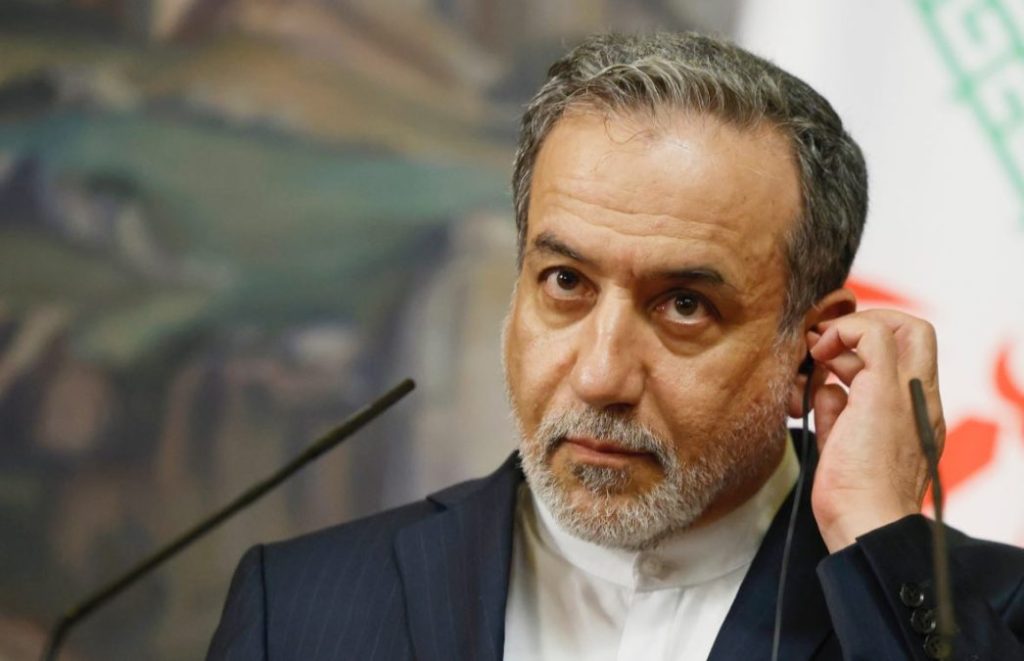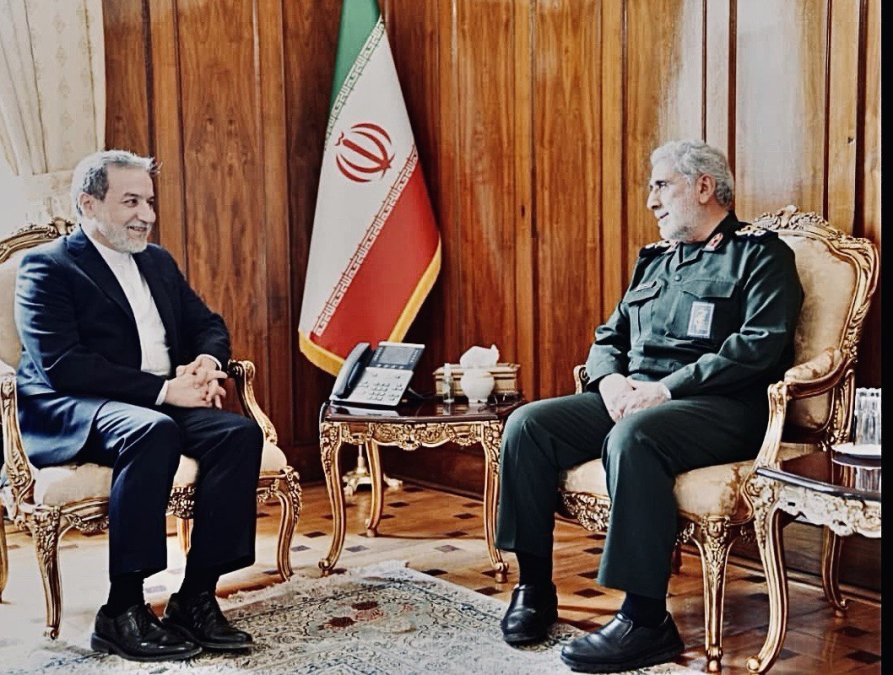Foreign Minister or IRGC Spokesperson: Why Araqchi’s Performance Provoked Diplomats
Foreign Minister or IRGC Spokesperson: Why Araqchi’s Performance Provoked Diplomats
According to IranGate News Agency, nearly a year after the start of the fourteenth government and handing over the helm of foreign policy to Abbas Araqchi, it is now time for a thorough review and analysis of this veteran diplomat’s performance during one of the most challenging periods in the modern history of Iran’s foreign policy.
Araqchi’s appointment in the early days of the government was accompanied by hopes—hopes for the return of rationality, experience, and engagement to the diplomatic apparatus.
However, what occurred in practice was a vague and sometimes contradictory image of Iran’s foreign policy that not only failed to meet initial expectations but also raised new questions about the independence and effectiveness of the Ministry of Foreign Affairs.
In this report, IranGate examines various aspects of this performance, reactions, criticisms, as well as the structural obstacles and limitations faced by the diplomatic apparatus in the first year of the fourteenth government.
A Year with Abbas Araqchi: Diplomacy in the Squeeze of Crises and Criticisms
Now that almost a year has passed since the start of the fourteenth government and the appointment of Abbas Araqchi as Foreign Minister, it is an appropriate opportunity to assess the ups and downs of this government’s foreign policy and the performance of a figure who, with a long history in diplomacy, took the helm of the Foreign Ministry.
Araqchi’s selection in the early days was perceived by some observers and analysts as a sign of the return of rationality and experience to the foreign policy apparatus—a notion based on his background in nuclear negotiations and his key role in the previous era.
But today, the one-year record of the Foreign Minister is more a subject of serious criticism from seasoned diplomats, policymakers, and media elites than a consensus.
These criticisms are not limited to specific failures but also point to structural weaknesses, disregard for international legal requirements, and even passivity in facing geopolitical crises.
From Hope for Transformation to Cold Realities

In the early weeks of Araqchi’s ministry, many believed that his presence could breathe new life into Iranian diplomacy and bring the foreign policy apparatus from the sidelines back to the core of decision-making.
However, a review of the one-year performance of the Ministry of Foreign Affairs shows that these hopes have faded in practice, giving way to serious concerns about the adopted approaches, the handling of international challenges, and even the diplomatic language of the minister.
Critics of Araqchi’s performance believe that the foreign policy of the fourteenth government has become more reactive and situational, lacking a strategic and proactive approach in response to major global developments.
Lack of transparency in decision-making, absence of diplomatic initiatives, and even the minister’s stance in certain cases, especially in sensitive files like nuclear negotiations or regional security developments, have made Iran’s position in the global arena vulnerable.
Diplomacy in the Tight Spot of Simultaneous Crises
In defense of Araqchi’s performance, his supporters emphasize that the Foreign Ministry has operated over the past year in an unprecedentedly crisis-ridden environment with complex internal and external pressures.
From the very first day of the fourteenth government’s operation, the assassination of Ismail Haniyeh, the head of Hamas’s political bureau, occurred in a situation that severely destabilized the regional atmosphere and plunged Iran’s foreign policy into a highly tense phase.
Simultaneously, extensive conflicts with Israel and the commencement of the ‘Promise of Truth’ operation in the resistance axis increased domestic demands on the Foreign Ministry.
Furthermore, Donald Trump’s return to the White House and the shift in U.S. policies against Iran imposed new pressures on the diplomatic apparatus, limiting the space for strategic initiatives.
According to Araqchi’s supporters, in such conditions, he was forced to adopt cautious, reactive, and merely moment-based positions, effectively losing the opportunity to move towards long-term horizons.
Decision-Making Structure: Obstacle or Limitation?
Another defensive point of Araqchi’s supporters is the policymaking structure in the Islamic Republic of Iran. They believe that the diplomatic apparatus is not an independent entity but an executor of policies decided at higher decision-making levels.
From this perspective, the Foreign Minister plays more of a role as an executive agent tasked with implementing the will of governing institutions within a predefined framework rather than a decision-maker.
Based on this, the evaluation of the minister’s record should not be solely based on tangible and immediate outcomes; the structural context and institutional limitations should also be considered—a view that has faced criticism from opponents, as some believe that even within this limited framework, there are capacities for initiative and effective crisis management.
Criticism from Within the Diplomatic Body
Other criticisms have been raised by figures like Mohammad Sadr, a member of the Expediency Discernment Council. Sadr believes that the Foreign Minister should speak with completely diplomatic and technical language and avoid entering domestic politics.
He says the Foreign Minister should not speak as if he were a military figure; a diplomatic view requires softness, transparency, and focus on national interests on the international stage, not internal games.
Sadr has also criticized the Foreign Ministry’s performance in negotiations, emphasizing that negotiations should have started earlier and that Iran’s diplomatic team should have played with more skill on the international stage.
In his view, Araqchi has at times failed to take clear positions and anticipate potential consequences, and has not sufficiently utilized the capacities of soft diplomacy.
Structural Analysis of Diplomacy in Passivity
Political and social analyst Abbas Abdi has also taken a more structural look at Araqchi’s performance, criticizing the lack of initiative in the Foreign Ministry and emphasizing that this ministry is facing a sort of daily routine, contradictions, and weakness in analysis.
He, referring to Araqchi’s statements about dialogue with the U.S., considers such preconditions a sign of lacking strategy and a precise understanding of the negotiation coordinates.
Abdi also criticizes the absence of a mid-term approach in the Foreign Ministry, stating that the diplomatic apparatus needs to develop a clear, cohesive, and executable roadmap to utilize all capacities to reduce pressures and increase domestic and international trust.
Diplomacy in the Limbo of Expectation and Crisis
The first year of Abbas Araqchi’s ministry presents a complex, multilayered, and thought-provoking picture of the state of the Islamic Republic of Iran’s diplomacy.
While his supporters emphasize the existence of simultaneous crises and structural limitations, critics speak of analytical weakness, lack of initiative, and passivity in the face of crises.
What is certain is that Iran’s foreign policy in the new era requires a deep review, the use of soft diplomacy, and strengthening analytical and technical capacities at the decision-making and execution levels.
Although the macro structure of diplomacy in Iran has its own characteristics, the responsibility and role of senior managers, such as the Foreign Minister, in steering crises and presenting a powerful and intelligent image of Iran on the global stage are undeniable.

